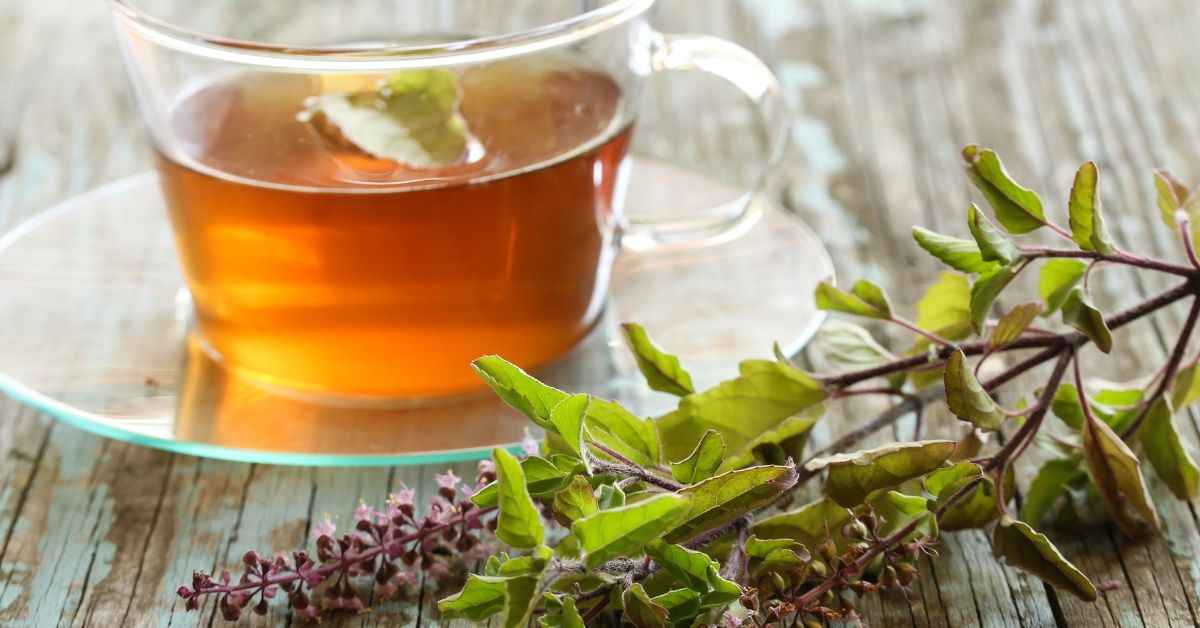I grew up watching my grandmother pick tulsi leaves and flowers from her garden to adorn the gods in the pooja room. She’d often mention that the leaves are as sacred as the plant, which is considered a manifestation of goddess Lakshmi. “Never let a tulsi plant die,” she’d advise.
In fact, tulsi, or holy basil, is commonly seen in Indian households. Often referred to as the “queen of herbs”, this aromatic perennial shrub is native to India and has been seen growing extensively across different parts of Southeast Asia.
Other than its religious significance, tulsi is also said to have many medicinal benefits and is considered an important ingredient in Ayurveda and naturopathy. It has been used as an effective remedy for different ailments since time immemorial.
Tulsi is a good source of Vitamin K, Vitamin A, Vitamin C, iron, zinc, manganese and calcium. It is known for its therapeutic effects in curing ailments related to bones, the respiratory system, and the gastrointestinal system.
Tulsi’s leaves are commonly eaten raw for curing coughs and colds. The oil extracted from it is used in the cosmetics industry, especially to make products such as perfumes, soaps, and lotions. The leaves can be used in different forms — fresh, dried, powdered, oil and even as a herbal tea.

Herbal tea made from tulsi leaves is also the perfect winter remedy for ailments like cold, cough and sore throat. And that’s not all.
Here are some more health benefits of tulsi tea:
1. Helps reduce stress
Brewing tulsi tea can help with stress or anxiety. Studies show that the plant has anti-stress properties as well as several components that help with mental stress triggered due to physical, emotional or environmental factors. It also helps balance cortisol levels in the body.
2. Boosts immunity
Tulsi tea has antimicrobial properties that keep different infections at bay. Moreover, the zinc and Vitamin C content helps boost immunity and metabolism.
3. Improves digestion
Tulsi tea can help improve digestion as it can stimulate the release of gastric juices. It has antispasmodic effects which offer relief from constipation, as well as the power to detoxify the entire digestive system.
4. Helps manage blood sugar levels
Tulsi leaves have hypoglycaemic properties that help lower blood sugar levels and prevent complications of diabetes. There are certain active components in the tea to help stimulate the pancreas and reduce insulin resistance.
5. Improves oral health
The antimicrobial properties of tulsi help improve oral health by fighting harmful germs and bacteria in the mouth. Additionally, the minty essence of the leaves freshens the mouth and removes bad breath.
6. Good for managing arthritis
Tulsi also has anti-inflammatory properties and helps with chronic pain or joint disorders like gout and arthritis. It also helps with inflammatory conditions related to the heart or digestive system.
Here’s a recipe to make this healthy herbal tea.
- Wash four to six fresh leaves of tulsi.
- Boil a cup of water.
- Add the leaves to the water.
- Let it simmer for some time for the water to absorb the essence of the leaves.
- Add some honey and a teaspoon of lemon juice to enhance the taste.
- You can also consume the tea as is.
Edited by Divya Sethu
No comments:
Post a Comment